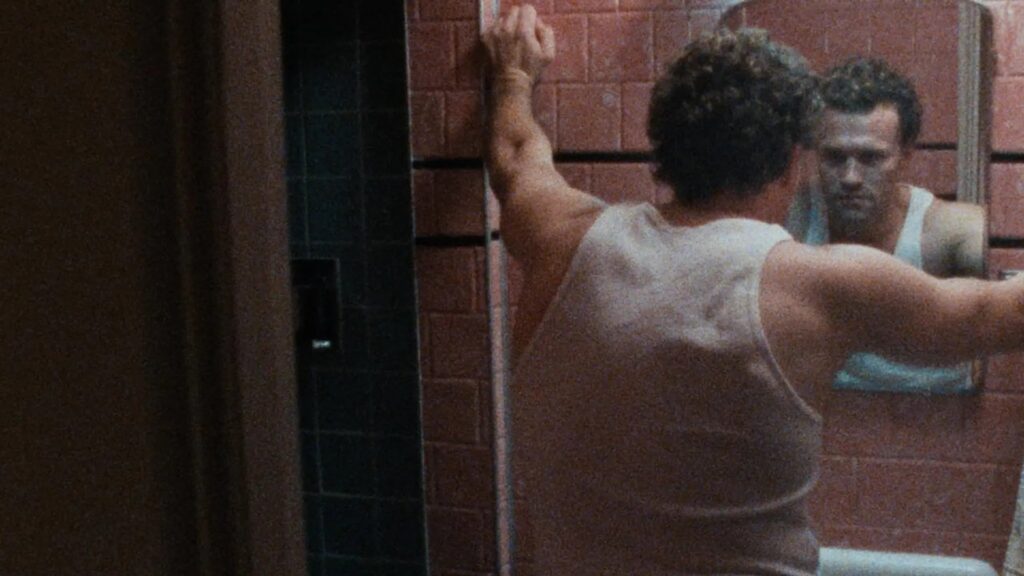When thinking of the theme for January, “based on a true story”, many films came to mind. Many films boldly claim to be “based on a true story” and so many of them get it all wrong. If you think a real story is great enough to be adapted into a film, then why do filmmakers find the need to change myriad aspects of what made the story appealing? The first film I wanted to look at that was “based on a true story” is one I’ve scrolled past many times, Henry: Portrait of a Serial Killer. True crime stories fascinate me, as they do many, and this story is one I always thought was interesting.
Henry Lee Lucas was nicknamed the Confession Killer due to his confessions of over one thousand murders. Why was he allowed to confess to so many crimes that he obviously didn’t commit? It comes down to his addiction to nicotine and police laziness. Before we try to analyze whether or not this is a faithful adaptation (it’s not), let’s take a look at the film proper.
Henry: Portrait of a Serial Killer follows nomad serial killer Henry (Michael Rooker) who is currently shacking up with his prison friend Otis (Tom Towles). The two men are eventually joined by Becky (Tracy Arnold), Otis’s sister who comes to town after escaping a particularly bad relationship. As Henry and Otis slip further into depravity, Henry finds himself getting closer to the off-limits Becky. Will Becky cast a wedge between Henry and Otis? Can she drive him out of the devil’s grips?
As a film, Henry succeeds. It depicts a fascinating delve into the mind of a serial killer. While Henry Lee Lucas probably killed four to five people, this film paints him in a much more questionable light. (I’m not saying he was a good person by any means, but we’ll get to that later.) Co-writer/director John McNaughton sets the scene with a seedy salaciousness. You can feel the dirt, grime, and blood pulsing from the screen. Henry was McNaughton’s directorial debut and oozed controversy; it’s an impressive debut.
Unfortunately, this film is little more than flashy. It’s controversy, for controversy’s sake. The most frustrating aspect about Henry is why it was even made. McNaughton could have easily written a slasher film about a degenerate serial killer and called it a day. Instead, he spits in the face of the people Lucas actually did kill. It should be noted that Michael Rooker and Tom Towles (rest in peace) give exceptionally authentic performances. There’s just no need to set their performances against the backdrop of supposedly real crimes.
A frequent criticism of true crime adaptations comes from the families involved. Recently, the mother of Tony Hughes (one of Jeffrey Dahmer’s victims), came out against the the Netflix series Monster: The Jeffrey Dahmer Story. Did McNaughton specifically pick Henry Lee Lucas because the victims were considered “the less dead”? It’s easy to spit in the face of the victims if their families don’t care about them/know they’re dead.
So what’s the point of trying to tell the Henry Lee Lucas story when you can’t even tell the basic information correctly? Lucas was missing an eye, which caused him many problems growing up. Do you think this was addressed in the film? Nope. Otis’s name in real life was Ottis (pronounced ah-tis). Why change his name? Becky was Ottis’s 11-year-old niece and not his 18-year-old sister. If you’re trying to tell a story about a serial killer that the audience ISN’T supposed to like, then why sugarcoat things?
McNaughton finds it necessary to show kills that Henry Lee Lucas definitely did not commit, yet he finds the need to whitewash the relationship between Henry and Becky. Becky had developmental issues in real life. So why don’t you show the true awful side of Henry? Instead, they decide to show us a consenting relationship between Henry and Becky. It’s truly distasteful. The number of times they try to find ways to make you sympathize with Henry rather than beg for police intervention is astounding.
While Henry: Portrait of a Serial Killer succeeds as a film, it completely fails at shedding any light on the true horrific story beneath the fiction. For a film that was post-release deemed X-rated, it is rather tame. With this film’s notoriety, I was expecting something more historically authentic and truthful. The final product is nothing more than two writers’ picking and choosing of history. I know that not every bit of detail can go into a film and some things need to be left out. It’s just confounding as to what was left out and which inauthentic aspects were added.
